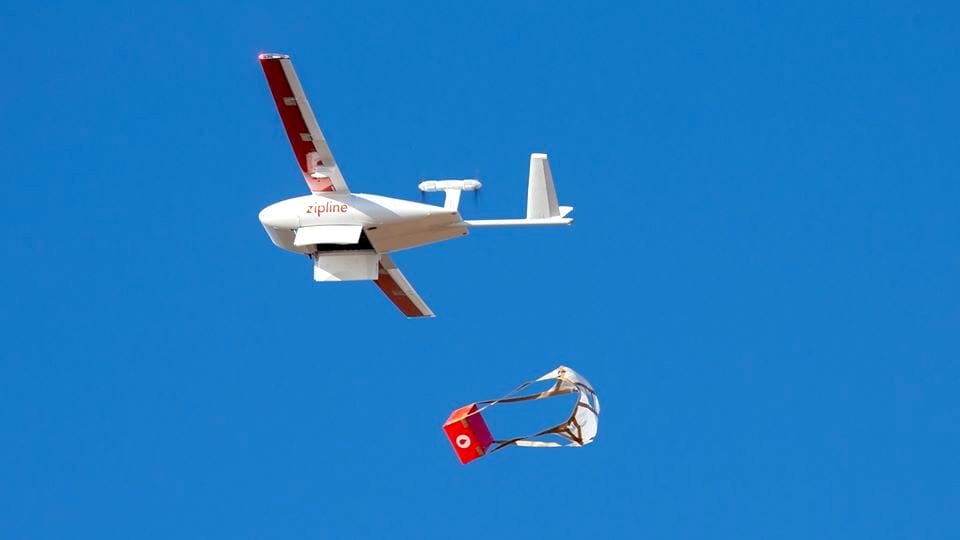
A new partnership between Zipline and Toyota will bring drone delivery services to
Zipline and Toyota Tsusho, a member of the Toyota Group, have formed a partnership to use drone delivery service to enable healthcare access in communities in Japan, the companies announced recently.
Zipline has established operations in the United States, Ghana, and Rwanda. This partnership marks its first expansion into Asia.
“The partnership itself is to enable the first-ever drone delivery of medical supplies and expand that to Japan,” Conor French, general counsel at Zipline, told Avionics International. “What we’re trying to do is build a model where we provide the hardware, the training, and those wraparound services and Toyota Tsusho is able to operate this facility. So it’s a different type of arrangement that we hope could spur growth in different directions.”
Previous Zipline operations in the U.S. and Africa were more powered by Zipline where their employees staffed and operated the project, French said. This project aims to provide Toyota Tsusho with a manual and providing umbrella training similar to an OEM.
“We’ve been working so hard for years now I think it is allowing us to explore in these ways,” French said. “I don’t see it as particularly different. Of course, we wouldn’t be the operator and so we would be providing that sort of umbrella training and hardware and being a true OEM in this type of relationship.”
Toyota Tsusho and Zipline are not new partners. Toyota Tsusho invested in Zipline in 2018 and is involved in the NEXT Technology strategy, according to the release. The companies also partnered in Ghana where Zipline delivered medical products from Gokal-Laborex Limited which is Toyota Tsusho Group’s pharmaceutical distributor.
“We first invested in Zipline three years ago because we strongly believe their technology has the power to reimagine how health systems deliver care to people around the world,” Masato Yamanami, CEO for the automotive division of Toyota Tsusho, said in a statement. “Zipline’s model has proven systematic impact, and we are thrilled to bring that same innovation to support the communities of Japan.”
The companies could not provide any details on the exact locations in Japan where these operations were going to begin because they want to engage with the communities to build acceptance first before establishing operations, French said.
“The way I think about public acceptance, and why it’s this enormous hidden challenge in the industry because I think people are so preoccupied with FAA and approvals in the U.S. and they don’t think about what that next level will be with the same rigor,” French said. “In the history of aviation public acceptance is closely tied to the regulator in a way that you get on a plane unthinkingly because the FAA says it’s safe, and it sort of signals, they have a great signaling effect for air risk. That doesn’t eliminate all the public acceptance challenge.”
French said Zipline is focused on delivering value and being able to provide services to address the public acceptance of drone delivery operations.
Zipline drone delivery operations could begin in more rural areas, French said, but Zipline has shown they are able to operate in densely populated areas as well with their programs in Rwanda.
“There are many folks who consider Africa itself a country rather than a continent full of diverse countries and Rwanda is actually one of the most densely populated countries in the world, and so we do feel very comfortable both from a safety perspective but also in terms of delivering value there,” French said. “That being said, a lot of this may begin in more remote and potentially island areas.”